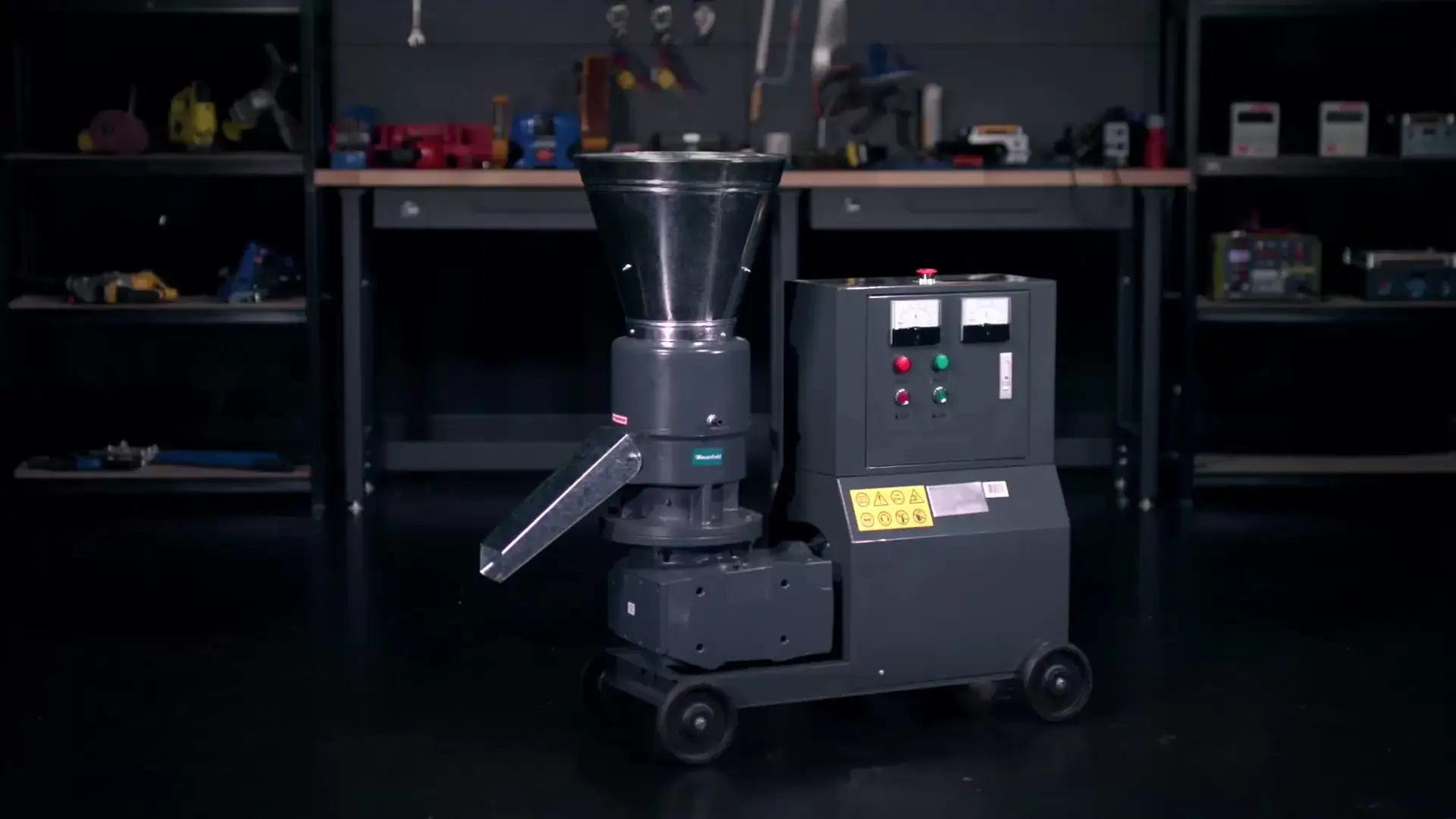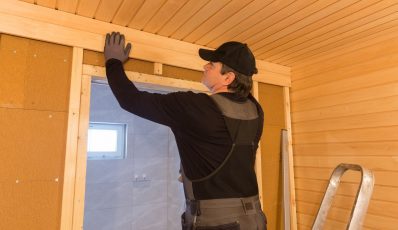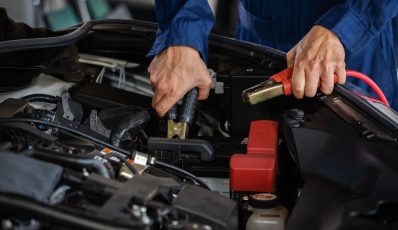A pellet machine (also known as a pelletiser) is used to produce pellets. The pellets are usually produced from wood, straw or sawdust and pressed under high pressure. You can use them as fuel for your pellet furnace or as animal feed. From our article, you will learn how to properly service and operate the Wiesenfield WIE-PM-2000 pellet making machine.

A pellet machine (also known as a pelletiser) is used to produce pellets. The pellets are usually produced from wood, straw or sawdust and pressed under high pressure. You can use them as fuel for your pellet furnace or as animal feed. From our article, you will learn how to properly service and operate the Wiesenfield WIE-PM-2000 pellet making machine.
How does a pellet machine work?
A pelletiser converts biomass, such as sawdust, into pellets in an efficient manner. Once the feedstock is poured into the hopper, it is compressed by a die inside the machine. The process takes place at a high pressure and a temperature of 60 to 80°C, which ensures an optimal pellet consistency. Its size depends on the die used. The diameter of its holes translates into the size of the pellets obtained.
How to use the Wiesenfield WIE-PM-2000 pelletiser
WATCH THE VIDEO ON HOW TO USE THE WIESENFIELD WIE-PM-2000 PELLET MACHINE!
Pelletiser Wiesenfield WIE-PM-2000
- Versatile – for the production of pellets from organic materials for heating and fertilising and feed for animals
- Efficiency – processes 200 kg/h of feed or 120-200 kg/h of wooden sawdust
- High power – 7500 W motor delivers 1450 rpm
- Durability – excellent pellet consistency thanks to an operating temperature of 60 to 80°C
- Intuitive – compact, mobile and easy to use machine on four wheels
Pelletiser Wiesenfield WIE-PM-2000 – machine overview
ATTENTION: This article is intended as a guide to facilitate the use of the device. Before you start working, be sure to read the manual and the safety instructions contained in it!

Take a close look at all the components that make up the pellet making machine:
- Chute
- Die pressure screw
- Upper casing
- Hopper
- OFF button
- Power indicator light
- Ammeter
- Work indicator light
- Emergency stop switch
- Voltmeter
- ON button
- Control box
- Air outlet valve
- Wheels
- Gearbox
- Oil level control window
Pellet making machine Wiesenfield WIE-PM-2000 – assembly of the device
Once you have unpacked your pellet machine, follow the steps below:
- Attach the wheels of the machine using M8x16 screws and Ø8 mm washers.
- Fix the mesh on the hopper.
- Place the hopper on the machine casing and screw it on.
- Screw the chute in place.
- Make the electrical connection. WARNING: Remember that the connection should be made by a qualified person in accordance with the diagram in the manual!
How do I prepare the Wiesenfield WIE-PM-2000 for operation?
- Place the pelletiser in a safe, clean, stable place (away from heat and water) to ensure air flow.
- Make sure that the power supply to the appliance matches the data shown on the rating plate.
- Check that all screws and bolts are tight.
- Use the supplied grease gun to inject bearing grease. Place the tip of the grease gun in the grease injection hole.
- Grease the rollers by placing the grease tube in the side hole of the component.
- Remember to lubricate the bearings and rollers with the grease intended for this purpose.
- Repeat this process after every 8 hours of operation of the pellet machine.
- Adjust the rollers to ensure free movement of the die.
- Top up the oil.
How do I grind the die before first use?
Remember to prepare the machine correctly before grinding the die (see above)!
- To grind a new die you need:
- 5 kg of sawdust (sawdust or flour),
- 1.5 l of vegetable oil (can be used or contaminated),
- 5 kg of fine sand (optional).
- Mix all ingredients in a bucket until a smooth consistency is achieved.
- Connect the pelletiser to the power source, then switch on using the ON button. The motor should start and the die should begin to rotate.
- Place the pellet container under the chute.
- Push the mixture through the die 80-90 times until the pellets meet the quality requirements.
How to start the Wiesenfield WIE-PM-2000 pellet machine – operating guide
Once you have the unit ready for use and the die grinded, you can proceed. Before using it for the first time or after replacing the die, always verify that the direction of rotation of the die is in line with the arrow (sticker on the casing). Follow the following steps in sequence:
- Prepare the mixture for pellet making – the maximum length of raw material should be about 5 mm.
- Connect the pelletiser to the power source, then switch on using the ON button. The motor should start and the die should begin to rotate.
- Place the pellet container under the chute.
- Pour a small amount of the mixture to be granulated into the hopper. If you throw in too large of a portion at once, the die may clog.
- Follow the same procedure until the prepared mix has been completely processed.
- When you have finished working, switch the machine off with the OFF button and unplug it from the power supply.
- Remember not to stop the machine while the pellets are being pressed (except for an emergency stop)! The machine may clog.
- Clean the machine so that no pellets are left on the rollers or in the die.
- Bear in mind that the pellets will reach the correct consistency only after they have cooled down.
Servicing the Wiesenfield WIE-PM-2000 step by step
Always ensure that the pelletiser is not connected to the power supply before carrying out maintenance.
Replacement/disassembly of the die
- Unscrew the hopper and remove it from the appliance casing.
- Loosen the pressure screw on the upper casing.
- Remove the upper casing. Then clean the die and rollers of any remaining material.
- Use the special spanner to unscrew the large roller retaining nut in the centre and gently remove the rollers.
- Clean off any remaining material.
- You can use a drill to pre-push the holes in the die.
- Clean the rollers of any remaining material.
- Use the screws to slowly pull out the die.
- Clean or replace the die with a new one – remember to use only non-corrosive products for cleaning.
- Every 15 days, check that the air outlet valve is working properly.
- Dry the components thoroughly after each cleaning.
- When assembling, repeat the previous steps in reverse order.
Roller and die lubrication
Lubricate rollers and die with bearing grease each time after 8 hours of operation.
- Remove the rollers and the upper casing.
- Grease the rollers by placing the tip in the side hole of the component.
- Force the grease into the die using the grease gun provided.
- Insert the tip of the grease gun into the grease injection hole.
- Press down on the handle of the grease gun to begin injection.
- Fit the hopper and tighten the screws.
Oil change
Remember to change the oil after 60 hours of operation.
- Place the used oil container in a suitable place.
- To empty the used oil container, unscrew the screw indicated in the instructions with an Allen key.
- Unscrew the oil filler, place a funnel in the filler and add oil.
- Check the oil level via the window on the gearbox.






Share